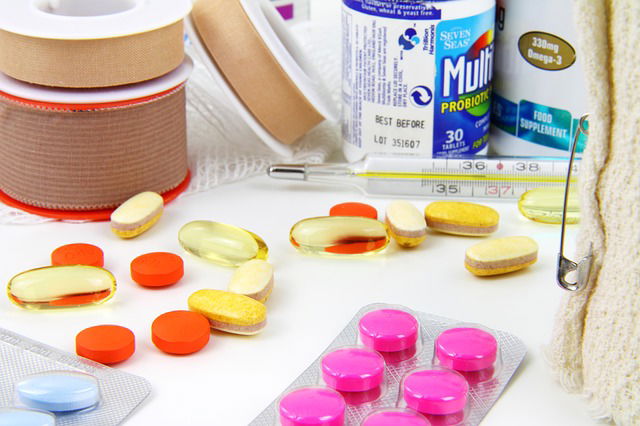
Everyone stores some medications at home for common diseases and health conditions.
But it is hard to know whether the medicine stored for daily use is enough to protect you.
Paul Holder, PharmD, clinical assistant professor of pharmacy practice at the Texas A&M Irma Lerma Rangel College of Pharmacy, provides some tips about what you should put in your medicine box and how to store them.
Drugs for allergy
You may get allergy when the season or your living environment changes.
Therefore, you should have eye drops and antihistamines in your medicine box to fight allergy.
The researcher recommends a “drowsy” antihistamine and a non-drowsy antihistamine on hand.
Anti-bacterial drugs
These drugs can be used to treat or prevent minor skin infections. The infections usually come from minor scrapes, abrasions or insect bites.
The researcher recommends anti-bacterial creams and ointments for different needs.
People can apply creams after the wound is washed with soap and water. They can use ointments when the wounds might be exposed to water.
Painkillers
Painkillers are very common drugs people store at home. It is important to choose painkillers to work best for your needs.
If you have children at home, you should also store some children painkillers.
Decongestant drugs
The researcher suggests people find such drugs from the standard shelves of the pharmacy or behind the pharmacy counter.
Anti-diarrheal drugs
Diarrhea is a common health condition in both children and adults. It is important to have some anti-diarrheal drugs stored at home.
This type of drug could slow down gut movement and make the stool less watery.
Activated charcoal
This drug could induce vomiting to deal with an accidentally ingested poison. It can remove all contents of the stomach and effective in young children.
The common side effects of activated charcoal are black stools, black tongue and vomiting or diarrhea.
When a food poison happens, people should immediately contact 9-1-1 or a local poison control center for help.
Calamine lotion
This drug is important to fight minor skin irritations like a bug bite or minor burn.
The lotion could help reduce itchiness and pain. You can combine it with antihistamine drug to fight bug bite.
Adhesive bandages
Adhesive bandages are important to deal with minor cuts or abrasions. They usually offer a physical barrier of protection for an open wound.
Sunscreen
Sunscreen can protect your skin from sunburn. Be sure to use it before going out under the sun. It is effective in preventing skin cancer.
People should choose a sunscreen with at least SPF 30.
Digital thermometer
Compared with glass thermometers that contain mercury, digital thermometers are safer and more accurate in temperature readings.
Nasal aspirator bulb
This tool is useful when clearing mucus out of children’s noses.
It is important to thoroughly clean and keep the nasal aspirator bulbs dry. This can help prevent germ transferring among family members.
Tweezers
According to the researcher, tweezers are useful for removing splinters and removing ticks.
How to store them
The researcher suggests that people should keep their medicine box away from the bathroom.
This is because humidity can impact and even completely inactivate medication. The medication may lose efficacy due to the humidity and heat in the bathroom.
You also need to check the expiration dates of your medication and get rid of any expired or unwanted medications.
Copyright © 2019 Knowridge Science Report. All rights reserved.



